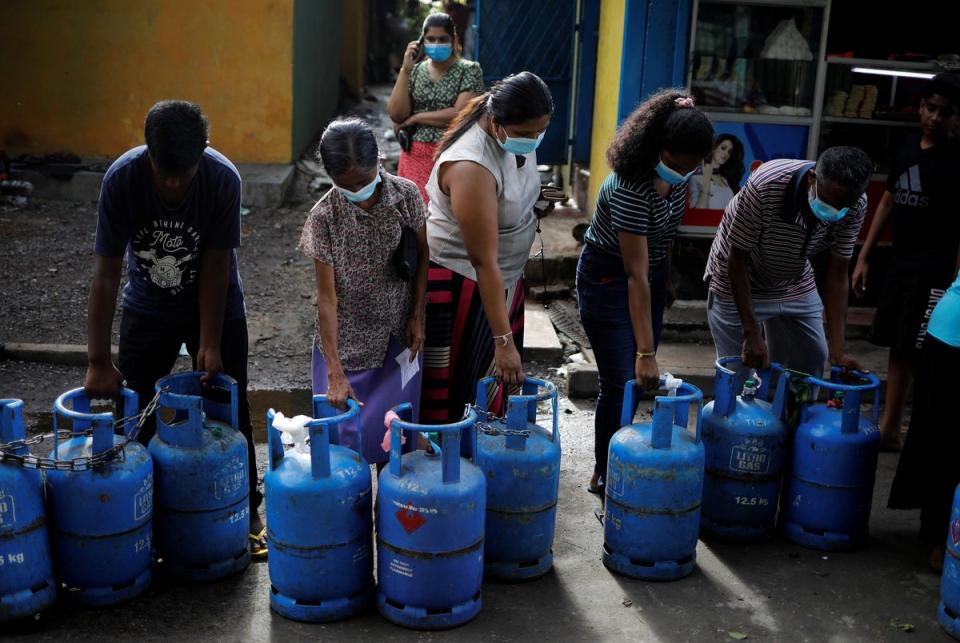Sri Lanka becomes first Asia-Pacific country this century to default on debt
Sri Lanka’s central bank has declared that the country has defaulted on its debt for the first time in the country’s history as citizens reel under an economic and political meltdown.
The country missed the 30-day grace period deadline for interest payments on two of its sovereign bonds worth up to £63m on Wednesday and fell into a “pre-emptive default”, Sri Lanka’s central bank governor Nandalal Weerasinghe said on Thursday.
It has become the first Asia-Pacific nation this century to miss such a deadline, according to credit ratings agency Moody’s.
Speaking after the deadlines for payments to international creditors passed, Mr Weerasinghe said: “Our position is very clear, we said that until they come to the restructure [of our debts], we will not be able to pay. So that’s what you call pre-emptive default.
“There can be technical definitions... from their side they can consider it a default. Our position is very clear, until there is a debt restructure, we cannot repay,” he added.
It comes as no surprise to analysts as Colombo had last month declared it would not repay its international debts as it attempted to control its dwindling foreign currency reserves amid an economic crisis.
On Thursday, Moody’s Investors Service also confirmed that Sri Lanka has “defaulted on its international bonds for the first time”. It said it expected the country to reach an agreement with International Monetary Fund (IMF) for a bailout package, but this could take several months.

Pakistan was the last Asian country that defaulted in 1999, according to Moody’s.
Another credit rating agency, Fitch Ratings, confirmed the country’s default and downgraded its assessment to “restricted default”.
Sri Lanka owes about £41bn in overseas debt to international creditors as well as its bilateral creditors, including China, Japan and India.
The country, which has a 30-year-long history of unrest and civil war, started borrowing heavily in 2009 to fund the development of the country with infrastructural growth.
However, the global pandemic and its 2019 tax cut policy triggered a collapse in tourism which eventually led to dwindling foreign currency income and rising debts.
The Indian Ocean island nation has now been in the throes of an economic crisis – the worst in 70 years – for several months.
This has seen soaring inflation, a plummeting currency and severe shortages of food, medicine, fuel and other essentials. The chronic shortage of foreign currency has left the country unable to import these commodities, on which it is heavily reliant.

Public anger over the situation has exacerbated into a series of unrelenting violent protests that forced the resignation of the prime minister Mahinda Rajapaksa.
Around nine people have died in clashes, while more than 300 have been wounded and several detained after violent, fatal clashes on the streets of capital Colombo.
Sri Lanka is in talks with the IMF to negotiate a bailout and a debt restructuring with creditors. On Thursday, it said they expect to conclude potential loan programmes by Tuesday.
The country previously said that it needs at least £2-3bn to emerge out of the ongoing crisis.
Mr Weerasinghe warned that inflation, which is already very high, is going to get worse and soar to about 40 per cent.
“Inflation obviously is around 30 per cent. It will go even [higher], headline inflation will go around 40 per cent in the next couple of months,” he said.


